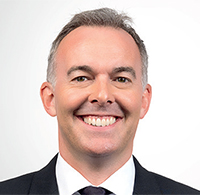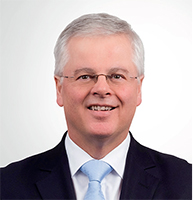
 By Ben Robins (pictured far right), Partner and Global Practice Leader for Mourant’s global funds practice, and Geoff Cook, Chair at Mourant Consulting
By Ben Robins (pictured far right), Partner and Global Practice Leader for Mourant’s global funds practice, and Geoff Cook, Chair at Mourant Consulting
This year has already presented its fair share of challenges for investors, but an area that continues to boom, for a number of reasons, is private capital.
This is the broad term used for investments in assets not available on public markets, often structured through investment funds.
Preqin, the leading provider of data on alternative assets, defines private capital as private investments in private equity (PE), venture capital (VC), real estate, infrastructure, private debt or natural resources.
Preqin estimates that assets under management (AUM) in the alternatives market will hit $23tn by 2026, a sharp rise from the $13.3tn recorded at the end of 2021 – click here.
Why has private capital grown?
Public markets have endured pronounced volatility over the past couple of years especially, whereas private markets have been less susceptible to external forces.
Access to private capital, formerly an institutional preserve, is being democratised. As individual and family wealth levels have increased, they are looking to corporate-style structures for their investments, noting the attraction of often superior returns achieved in the private markets.
Private capital, economic recovery
Of course, even private capital had to face up to the challenge posed by the pandemic, but the response was both resilient and resounding.
Strained public finances and escalating national debt, now at record levels, will have far-reaching consequences.
This backdrop will see increased demand for private capital, which will play a key role in economic recovery, as well as proving crucial to the new public-private partnerships that we anticipate will emerge in the coming months and years.
A striking example is the development of Covid-19 vaccines. Governments have extensive responsibilities for health legislation and services, but not for the production of medicines and vaccines, which lie in the pharma sector, given the vast capital costs involved in developing vaccines and the risks of failure.
Before the pandemic, vaccines could take decades to produce. Still, due to the innovation of companies such as Pfizer-BioNTech, they have developed much faster and rapidly deployed around the world in partnership with governments.
In 2022 and beyond, we can expect to see more examples of private capital put to work in a very new environment, where shortfalls in recovery funding encourage new public-private partnerships.
Significant new funds are now being formed, for example, to tap private capital investment into renewable energy projects and help fund the important COP26 transition to more sustainable energy sources.
High investor confidence
This isn’t to say that there aren’t headwinds that could hinder private capital’s seemingly endless growth. The return of inflation, less accommodative central bank policy, rising interest rates, the prospect of market corrections and increased geopolitical tensions could all impact the market.
Inflation especially was grabbing the headlines at the time of writing. Only time will tell, but fundamentals point to a significant reversal of the disinflationary and demographic forces that have suppressed prices and labour costs for three decades.
Inflation may peak and fall back, causing the pandemic-driven issues to abate, but the structural change in labour supply will mean that inflation will not return to the super-low levels of the past 30 years.
Inflation tends to drive an unlevel playing field. If you are retired and living on your savings, high inflation reduces the actual value of your income – every pound, dollar or euro doesn’t go as far, as everything costs more.
If you are poor, the surge in energy and food prices will immediately and disproportionately impact your cost of living. However, if you have borrowed substantial sums at fixed rates, you may not be too concerned as you see the value of your assets climb while your borrowing costs remain fixed.
Overall, high inflation puts the post-pandemic recovery at risk, with the spectre of a recession looming.
The challenge of high inflation for the business world is making business and investment decisions less predictable.
As far as international finance centres and cross-border investment are concerned, there is the potential for a slowing of transactions while investors appraise the new environment and the impact on expected returns.
 However, economic strains can also create asset management opportunity – for example, the need for enhanced debt and credit fund finance and distressed asset investment opportunities.
However, economic strains can also create asset management opportunity – for example, the need for enhanced debt and credit fund finance and distressed asset investment opportunities.
Often the best private equity returns are experienced by funds established and acquiring assets in a downturn.
There are forces that we expect will counteract the impacts of rising inflation. Institutional investors have substantial equity, and the impetus for putting that to work is even more significant in an inflationary environment.
Investors will want to ensure the value of their capital isn’t eaten away by inflationary forces and will be even more motivated to invest.
The environment is not an easy one for investors to navigate, but it does seem as though confidence remains high despite the inflationary pressures. Institutional trends especially are positive.
The giant ($495.3bn) California Public Employees’ Retirement System (CalPERS), for example, has set new asset allocation targets to take effect in July 2022, with no less than 21% of funds allocated to real assets and private equity – an increase of $59bn.
Traditional asset managers are also joining the party, with groups as diverse as Blackrock, JP Morgan and Schroders increasingly active participants in private capital, further embedding the trend to invest in alternative assets.
Channel Islands’ role
The race to harness private capital is on, and the Channel Islands have an important role to play. The jurisdictions as a whole, and their leading firms, are already repositioning for the new environment.
ESG is high on the agenda to assuage investor concern, investment in the best talent is increasing, and efforts to meet ever higher governance and international regulatory standards have wide support.
Those continuing efforts will help the islands build on successful histories in this area. In the Channel Islands in 2021, fundraising and deal activity were buoyant in the PE and VC spheres, across a wide variety of asset types, but with technology, sustainable investment and renewables proving popular themes.
Real estate deal activity (mainly in UK offices, retail and logistics) also rose sharply last year, as have transactions funded by our distressed debt and credit opportunities fund clients. We see these trends continuing through 2022 and beyond.
Jersey and Guernsey are ideally placed to facilitate access to private capital, and at Mourant we have seen no let-up in 2021’s flow of instructions in the first half of 2022.
This has not been the year that any of us expected, but once again the islands’ agility and expertise are the constants that can be relied on.
FIND OUT MORE
Mourant is a law firm-led, professional services business with more than 60 years’ experience in the financial services sector.
• This advertising feature was first published in Businesslife's Funds Edition in August 2022